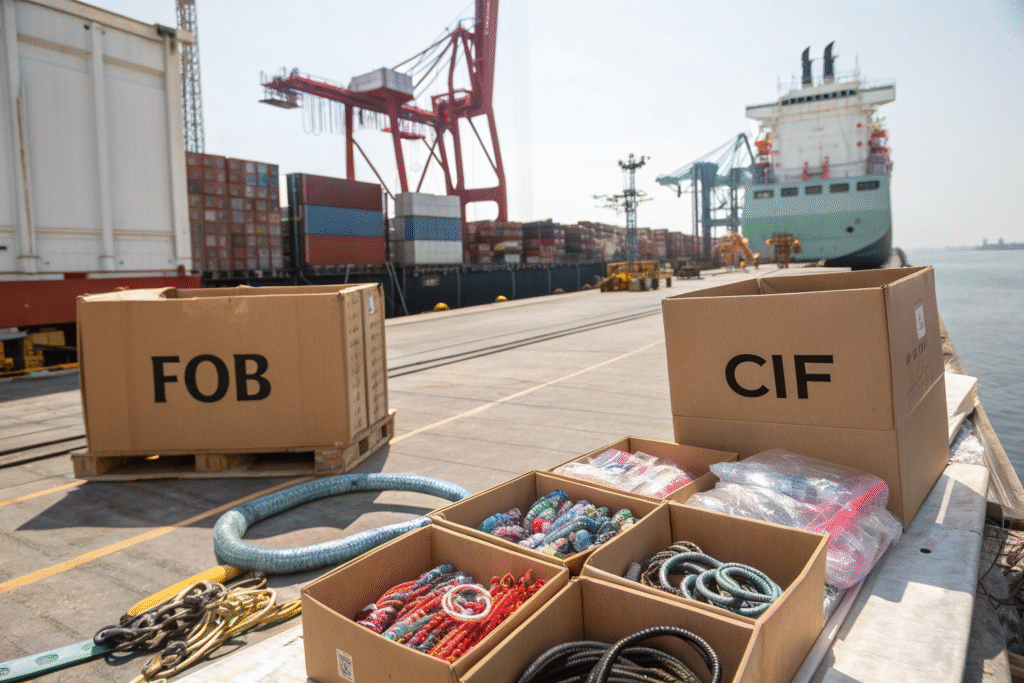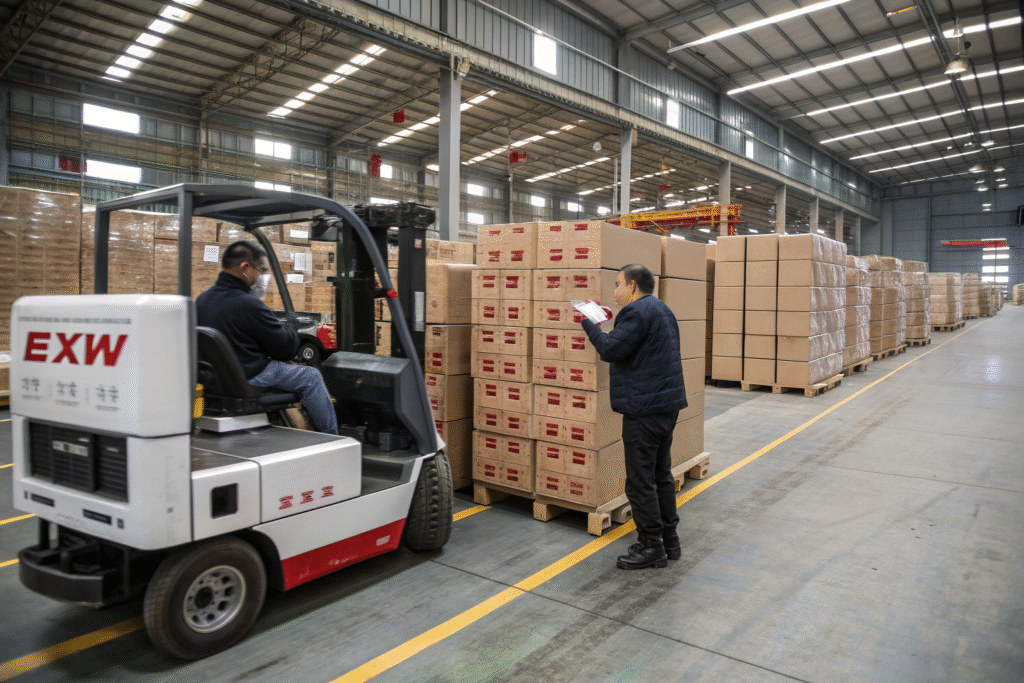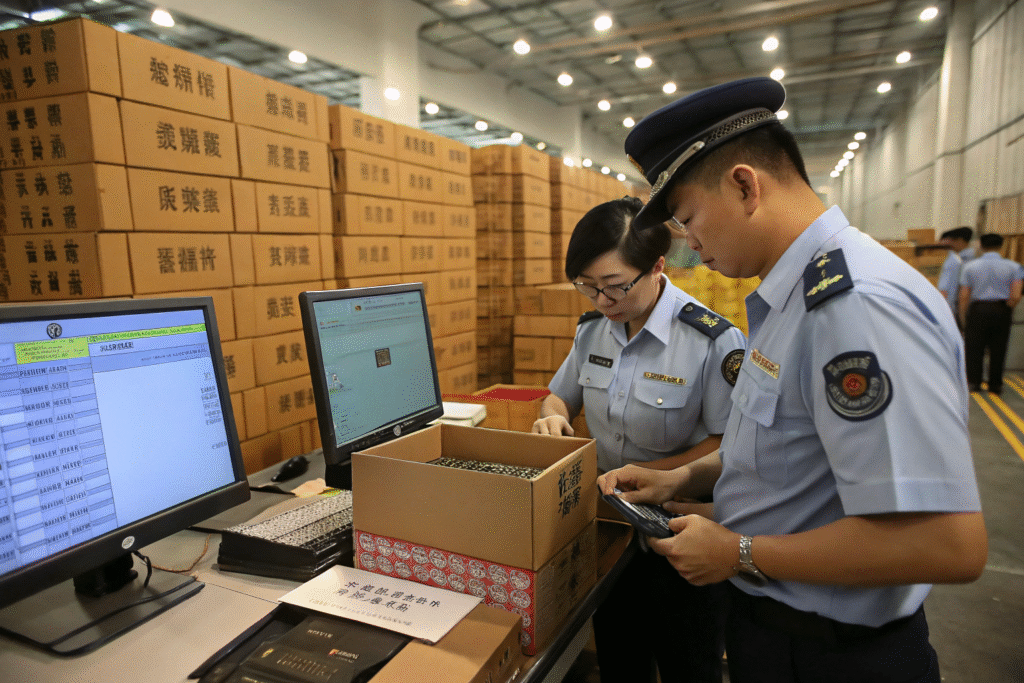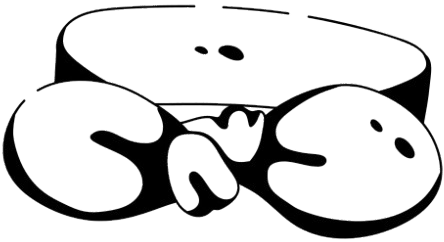When importing hair clips from China, the choice of Incoterms can determine your final landed cost, delivery time, and how smoothly your goods clear customs. In my years running a large-scale hair accessories factory in China, I have worked with clients across the US, Europe, and Russia, each with different shipping priorities. Some need absolute cost control, others value convenience, and some require speed above all else.
The best Incoterm is not the same for everyone. It depends on your experience with logistics, your risk tolerance, and the size and frequency of your orders. In this guide, I’ll explain the main Incoterm options that work best for hair clip imports, the pros and cons of each, and insider tips to help you avoid costly mistakes.
FOB vs CIF: Which Is Better for Hair Clip Imports?
FOB (Free On Board) and CIF (Cost, Insurance, and Freight) are the most widely used terms for bulk hair clip shipments. They decide who controls the shipment and who pays for certain costs once the goods leave our factory.

Why Do Many Importers Prefer FOB for Hair Clips?
With FOB, we handle production, inland delivery to the port, and export clearance. You take over after the goods are loaded on the vessel. This gives you full control of the freight, allowing you to work with your trusted forwarder, choose routes, and monitor schedules using tools like Freightos. Many importers choose FOB to ensure their delicate hair accessories are handled by carriers familiar with fashion products.
When Is CIF a Smarter Choice for First-Time Buyers?
CIF works well for beginners. We arrange freight and insurance to your port of destination. You don’t need to coordinate with multiple logistics providers. The downside is that CIF insurance is usually minimal and may not cover the full value of your high-end pearl hairpins or decorated claw clips. I always advise checking policy coverage — I’ve seen importers lose thousands when standard CIF insurance didn’t cover damages.
Is DDP the Most Convenient for Small Hair Clip Orders?
For small or urgent orders, DDP (Delivered Duty Paid) is often the most convenient choice. We handle everything — manufacturing, shipping, customs clearance, and payment of import duties — delivering directly to your address.

Why Do E-commerce Sellers Love DDP?
E-commerce sellers appreciate DDP because it eliminates surprise customs bills and reduces lead times. We work with express couriers like DHL Express and FedEx for fast, trackable deliveries. This is ideal for trendy headbands, seasonal scrunchies, or limited-edition clips that need to arrive before peak sales events.
What Are the Risks of Using DDP for All Shipments?
DDP may not be cost-effective for large-volume shipments. Duties, shipping fees, and clearance costs are built into the product price, which can inflate per-unit costs. For high-tariff items like synthetic headbands or embellished hairpins, managing customs yourself under FOB or CIF could save significant money.
How EXW Terms Affect Your Hair Clip Profit Margins
EXW (Ex Works) gives buyers maximum control — but also maximum responsibility. We make the goods available at our factory, and you handle everything from pickup to final delivery.

When Is EXW a Good Choice for Experienced Importers?
Seasoned importers often choose EXW when they have established networks in China. They may consolidate multiple supplier orders into one container to cut costs, using partners like SeaRates or Flexport. This method is particularly efficient for lightweight, high-volume goods like hair clips in retail packaging.
What Are the Downsides of EXW for Hair Accessories?
For newcomers, EXW can be risky. You must arrange inland transport, handle export paperwork, and book freight. I’ve seen delays in hair barrettes shipments when buyers underestimated the complexity of Chinese export procedures. Missing a scheduled vessel can mean missing your target sales season.
Which Incoterm Minimizes Customs Delays for Hair Clips?
Customs delays can kill a seasonal product launch. Certain Incoterms can help reduce clearance times by ensuring smooth documentation flow.

How Does FCA Help with Faster Customs Clearance?
FCA (Free Carrier) lets us deliver goods to your nominated forwarder in China, ensuring they manage export clearance from the start. This often speeds up customs processing, especially when your customs broker knows your HS codes for fashion accessories. FCA can be a strategic choice for high-value shipments where timing is critical.
Why Can DAP Be a Good Middle Ground?
DAP (Delivered At Place) allows us to handle international transport and delivery to your site, while you manage import duties. This keeps costs transparent and is effective in the EU where hair accessory tariff rates vary. It offers professional handling without giving up control over customs payments.
Conclusion
Choosing the right Incoterm for hair clip imports from China is about balancing control, cost, and convenience. FOB gives experienced buyers more control, CIF helps beginners get started, DDP offers simplicity for small shipments, EXW suits seasoned consolidators, and FCA/DAP can reduce customs delays.
If you’re planning your next hair clip order and want a supplier who understands both manufacturing and logistics, we at Shanghai Fumao can guide you through the process. Contact our Business Director Elaine at elaine@fumaoclothing.com to get expert advice and ensure your shipment arrives on time, every time.








